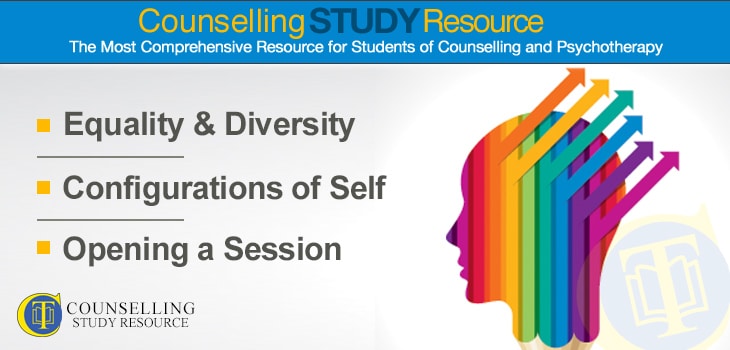Configurations of Self
The theory of configurations of self – sometimes known as ‘the dialogical self’ – is quite a new idea in person-centred counselling.
While Rogers saw the self-concept as a single configuration of perceptions, Mick Cooper first suggested that people may be able to access and switch between a range of different self-concepts. Dave Mearns and Brian Thorne developed this idea, suggesting that each person has multiple configurations of self. Rory illustrates this with a quote from Star Trekby Captain Jean-Luc Picard, who spoke of ‘the many voices within the one’.
The idea is that we develop various alternative personalities that appear in certain circumstances. Each configuration has its own desires, needs, style and view of the world. During the course of a normal day, we may draw on various configurations of self.
Many writers have referred to Carl Rogers’ idea of conditional positive regard: that a client may limit their own self-acceptance because of fear, shame, regret, embarrassment, anger, or a sense of loss about themselves or others. These negative emotions, or constructs, are sometimes referred to as ‘not-for-growth configurations’. In other words, the negative side of the personality – the emotional inner voices that bring psychological pain – may hamper both happiness and self-understanding.
By exploring and examining these not-for-growth configurations in a safe, non-threatening and non-judgemental environment, the client can process their feelings, thoughts and behaviours – and so begin the process of checking the reality and impact on their lives. Rory provides an example from practice, based on a client who had experienced abuse and was blaming self for this.
It is not our job as counsellors to analyse the client’s configurations of self; rather, we can support the client by offering the core conditions as they choose to explore parts of themselves of which they may feel ashamed. A not-for-growth configuration can act as a massive ball-and-chain, dragging the client down in their life; counselling can support them to look at this and set themselves free.



